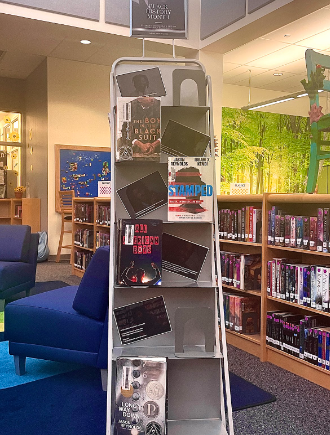The ‘Freedom to Read’ bill (house act 785) has been brought to discussion in the State of Maryland due to the issue of books being eliminated from libraries all around the country. The bill communicates that books should not be removed from a library because of the “origin, background, or views of the person who created the material.” or because of “partisan or doctrinal disapproval,” it says.
The main objective of this bill is to protect the rights of books deemed controversial or offensive in order to protect our first amendment rights.
Renate Owens, Oakdale High School’s main librarian, voices that this bill would “help students to get an honest and accurate education which means they will be able to learn new ideas, understand varied perspectives, and have access to materials, services and resources” for student learning as well as serving. “A start towards protecting librarians and libraries everywhere.” Owens continues.
Owens remarks that due to recent challenges that come with censorship, FCPS had a several week long Reconsideration Committee which resulted in only one of the 30+ challenged books being removed from school libraries in the end. The book was removed for adult content: it was intended for an adult audience and had no positive reviews from younger audiences.
Ava Nelson is a two time young authors contest winner, who won against the 2nd place winner, and a sophomore at Oakdale. While she has not had any personal issues with censorship impeding her love of learning, she communicates that if this bill does not see itself through then it’s likely that the results would pose themselves to be “inescapable obstacles.”
This bill’s importance is too grand to ignore due to the fact that “A lack of knowledge leads to devastating cycles. Sometimes visuals of the ghastly horrors that lurk our world is what it takes to wake people up,” she believes.
When it comes to what we and librarians can do to advocate, Owens communicates, “Librarians should continue purchasing books with positive professional reviews that reflect the interests and diversity of their communities while providing a safe and accessible space for all to access these materials, services and resources.”
“Patrons should continue to seek and request the materials they want and need and frequent their public and school libraries to show their support. Responding to calls for support from library advocates will also help to secure our intellectual freedoms,” Owens shared.
There is an overall consensus among those questioned that the “Freedom to read act.” As of now, the bill seems to have a bright future if it is to pass. However, it’s also acknowledged that the consequences of its failure may be detrimental to the future of the OHS library.






























